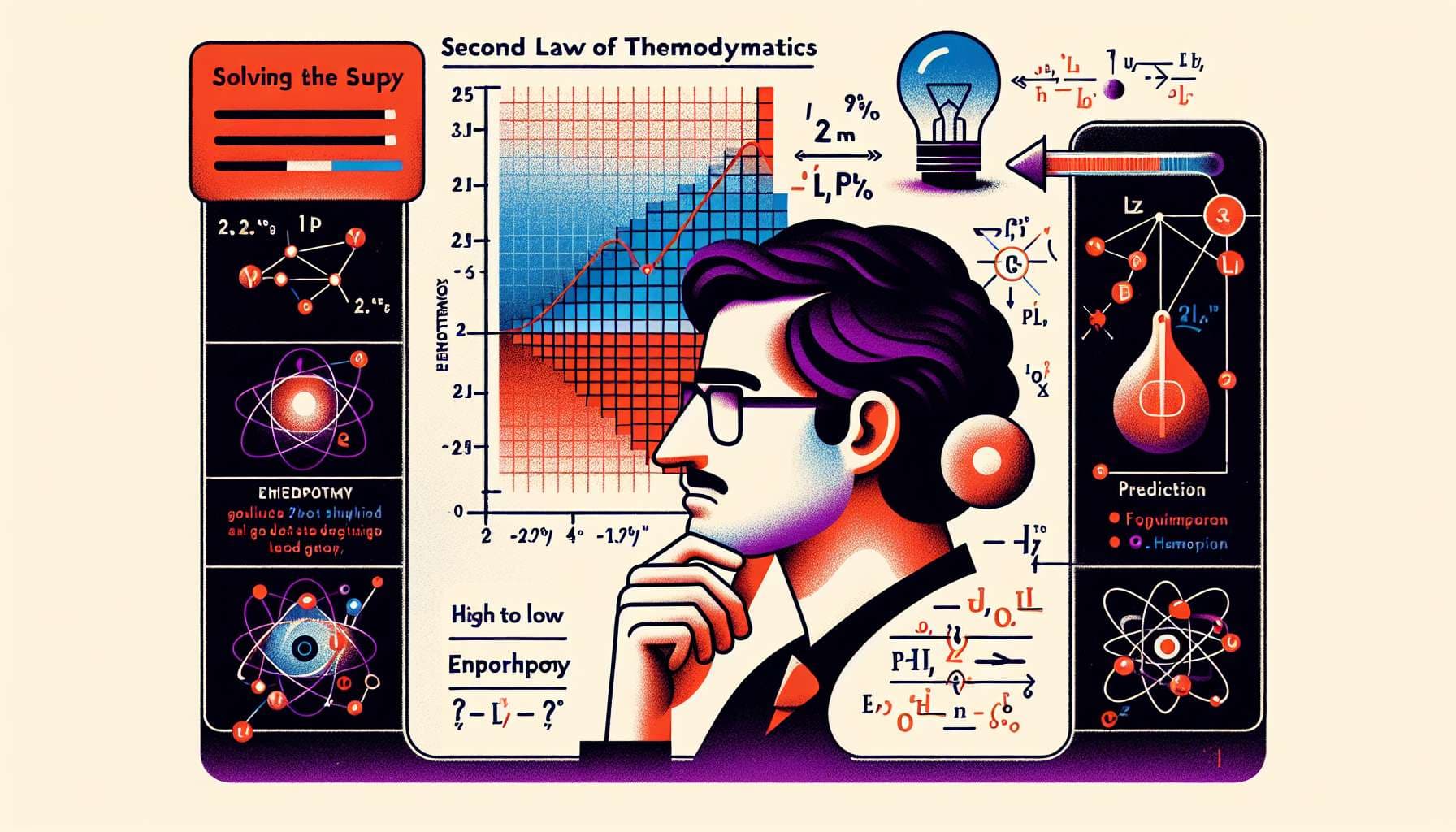
Criteria for Resolution:
1. Strong Scientific Consensus: There must be a strong scientific consensus that Stephen Wolfram has provided an explanation of the second law of thermodynamics from first principles (i.e., from a fundamental theory).
Clarifications:
- Strong Scientific Consensus: The resolution requires agreement among the majority of experts in the fields of physics and thermodynamics, as evidenced by:
- Peer-reviewed publications in leading scientific journals (e.g., Physical Review Letters, Journal of Statistical Mechanics).
- Endorsements or validations from reputable scientific organizations or societies (e.g., American Physical Society, Institute of Physics).
- Consensus statements or reviews from recognized experts or committees in the field.
- Explanation from First Principles: An explanation that derives the second law of thermodynamics from a theoretical framework that is considered to be fundamental. The framework itself must not necessarily be widely accepted, but must be at least considered falsifiable and not falsified.
- Verification: Evidence of this consensus must be found in reputable sources, including:
- Articles and papers published in high-impact, peer-reviewed scientific journals.
- Official statements or reviews from major scientific organizations or societies.
- Comprehensive reviews or meta-analyses in established scientific literature.
People are also trading
@Bayesian It is not known why it is time-asymmetrical (time-directed), especially taking into account that the fundamental laws are symmetrical. If you have a random process simulation, it will behave the same forwards and backwards in time, unlike entropy.
@IhorKendiukhov ok I should have said instead,
The 2nd law is just a statistically near certain outcome of lots of particles and energy exchange and whooshing about and a point in the past with absurdly low entropy / a very ordered interval in time. That last part is generally accepted and explains the time assymetry, to my limited understanding of the subject. Importantly, entropy behaves the same forward and backwards in time, but since the past has low entropy, it follows a natural interpreation we obviously have for a causal arrow where one doesn’t actually exist.. or something. If this understanding is sufficiently correct, are you then asking to find strong theoretical reasons why the universe might have a point of low entropy at one of its edges in time or wtv? In which case I would guess anthropics might explain it, but yeah i suppose that would be neat to know.
@Bayesian Generally, yes. I am not sure that “initial low entropy state” is a majorly accepted explanation. But if it is or will be, then of course it means that Wolfram’s explanation is, on the contrary, not accepted.
Regarding this: “If this understanding is sufficiently correct, are you then asking to find strong theoretical reasons why the universe might have a point of low entropy at one of its edges in time or wtv? In which case I would guess anthropics might explain it, but yeah i suppose that would be neat to know.” - This would indeed be a good description for a question regarding the scientific consensus on the entropy explanation in general. However, this market is specifically about Wolfram’s explanation. And its future acceptance or non-acceptance, while being influenced by the current state of the entropy explanations, does not necessarily follow from it. So, I would say these are 2 separate questions. Independently of the question whether “initial low level state” is well accepted explanation currently, I do believe that the consensus on the best explanation of entropy can be changed in the next decades with some non-negligible probability.
What i have found for context